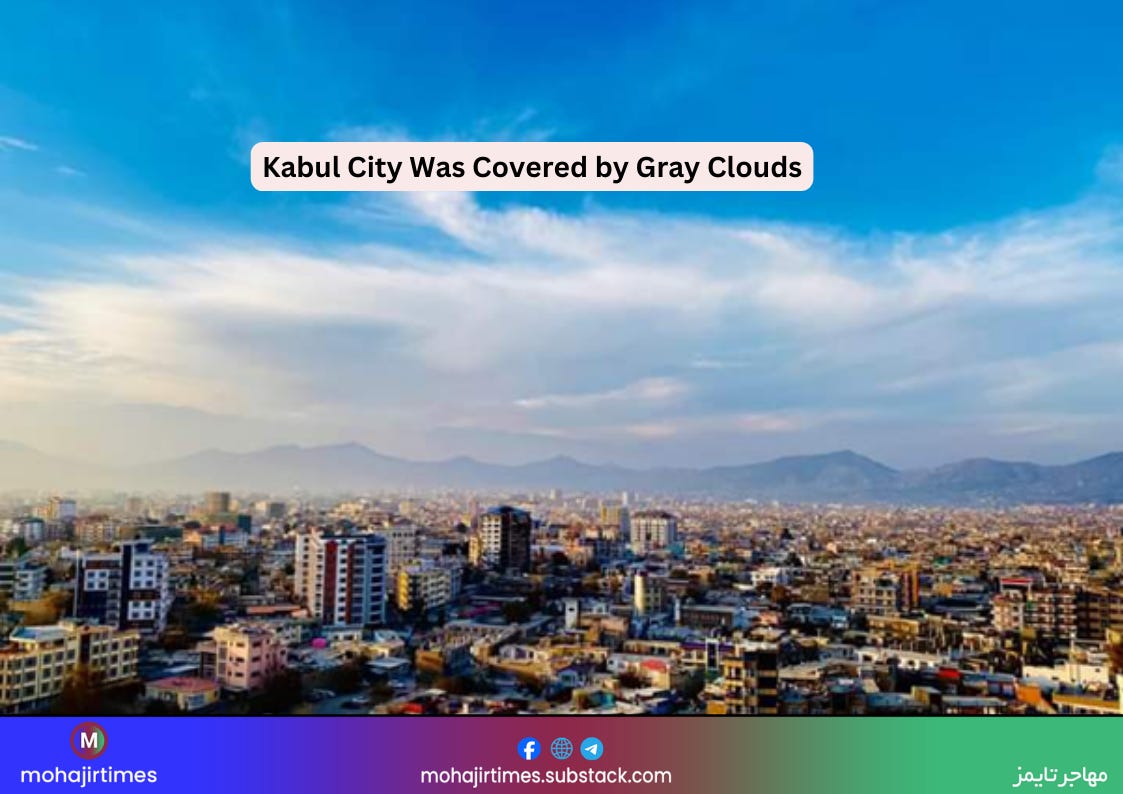By Sohaila Karimi
Gray clouds covered the beautiful city of Kabul; white snowflakes were falling from the sky of Kabul. The coldness of the air in Kabul makes one’s body shiver. It was silent and blind everywhere as if all the people had gone underground with the melted snow.
The smell of wood and suffocating charcoal smoke surrounded all the alleys. As I was rolling over the accumulated snow that had flowed from the roofs of the houses in the paths and back alleys, I said to myself: “The smell of the smoke of drug addicts under Pul-e-Sokhta was less, but now the smoke of wood, coal, and plastics has been added to it. If the winter coldness does not kill you, this polluted air of Kabul will kill you.”
I arrived at the alley in front of (Kaka Mahmoud), or Uncle Mahmoud’s bakery, Uncle Mahmoud was sitting with bloodshot eyes from the intense heat of the oven; his head and face were wrapped with a kerchief, and he was taking bread from the hot range one after another. Like every day, a few women with “Chador Burqa” were sitting on the wet ground under the snow in the weather getting colder and more biting by the moment, waiting for a piece of bread.
Many carters were sitting in the queue of daily wage laborers, some of whom had wrapped themselves with plastic and some with blankets because of the extreme cold. Like wounded birds, they were waiting for the only customers whose money would be enough for them to live for a day.
I was waiting for my last loaf of bread and was cooking it with Uncle Mahmoud. It was at this moment that suddenly, the voice of Taliban ranger vehicles broke the gray space and the black veil of silence like a gunshot. The chaos of the Carters, who were dreaming of the arrival of their work clients until a few minutes ago, broke apart.
Two ranger vehicles of the Taliban came from the direction of “Gola-e-Davakhana of Dasht-e-Barchi” with an ear-splitting sound. A few of the Taliban fighters with long beards and black turbans wrapped around their heads, with terrifying faces and whips in their hands, were running headfirst through the snow toward the carters of daily wage earners in the square. At that time, the Taliban fighters used their last cruel power to whip the carters that occupied half of the road. Taliban fighters used to hit and beat as deadly the daily wage workers who were looking for a morsel of bread for their families and children to survive.
I was dumbfounded, and my legs were numb and limp. Those were the moments when I could neither stand nor the ability to run away. My whole body was shaking like a willow from fear and the coldness of the air.
The cartons of oranges and bananas were swaying on the street due to the collision of the carts, and the carters were careless about the whipping on their heads and bodies, only thinking about keeping their oranges, bananas, and onions on the road. It was the only asset of the daily wage worker carters on which the lives of several members of their families depended it.
I saw a few women who were scared and pale from the fear of the Taliban running everywhere. Although it was not the first time I saw that heartbreaking scene. I had seen such painful scenes many times before when the government was called a republic by the government soldiers but with less barbarism and brutality.
At that time, the language and pity of the state police with the worker carters on the roads of Kabul city who were looking for a bite of bread was cursing, punching, kicking, and gun butt. But now and these days, aside from cursing, punching, kicking, and gun butt, “Whipping” has also been added to the bread of daily wage workers.
Whips, if they fall on the body of a lion, maybe the sound of its cries will shake the whole city of Kabul. But alas, the people who grew up amid explosions and suicides, cannons and guns, became silent.
Yeah! They became silent like a stone, but sometimes stones also have a sound. I must say that like snow. Yeah! The residents and people of Kabul became silent like the snow of Kabul.





